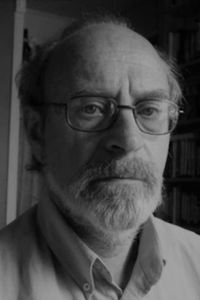Pedro Chaskel, a pioneering figure in the so-called New Chilean Cinema, has made significant contributions to the country's film industry as a director, cameraman, and editor of numerous short and feature-length films.
Born in Germany, Chaskel immigrated to Chile at the tender age of seven and later became a Chilean national in 1952. He went on to study architecture at the Universidad de Chile from 1951 to 1954.
In 1954, Chaskel co-founded and became an active member of the Cine Club Universitario de la Federación de Estudiantes de Chile (FECH),a group that aimed to promote and showcase films that didn't conform to the traditional commercial circuit. This led to the introduction of cinema forums, where debates and discussions would follow film screenings at the Central House of the Universidad de Chile.
Chaskel's passion for film led him to showcase classic works of German expressionism, Italian neo-realism, and other notable films that were previously unavailable in Chile. This initiative not only introduced new cinematic styles to the country but also fostered a sense of community among film enthusiasts.
Tragedy struck in 1973 when the military coup led by General Augusto Pinochet overthrew the government of President Salvador Allende. Chaskel was subsequently expelled from the Universidad de Chile and forced to flee the country.
Between 1974 and 1983, Chaskel settled in Cuba, where he worked as an editor at the Cuban Institute of Art and Cinematographic Industry (ICAIC). He also began directing and producing films for the institute in 1979.
After returning to Chile in 1983, Chaskel worked as an independent filmmaker, editing and directing documentaries. He has since become a respected figure in Chilean film education, teaching at various universities from 1997 to the present day.













